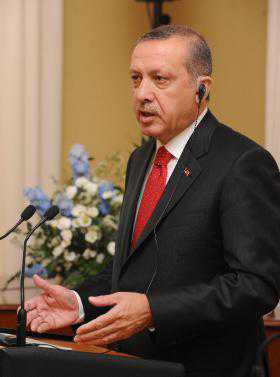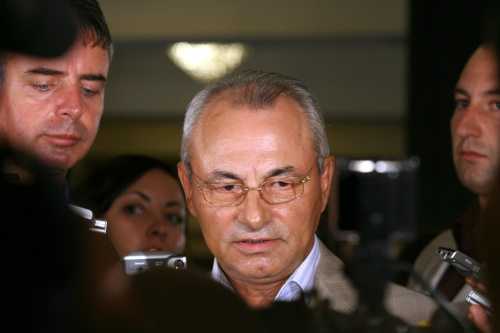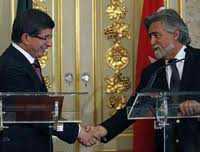 Deep-rooted Aegean border problems will be re-examined Friday by the Turkish and Greek prime ministers, who are set to meet in Athens on the sidelines of an international climate summit.
Deep-rooted Aegean border problems will be re-examined Friday by the Turkish and Greek prime ministers, who are set to meet in Athens on the sidelines of an international climate summit.
According to diplomats, however, there is no expectation of an instant breakthrough in resolving such problems even though Prime Minister Recep Tayyip Erdoğan’s recent statements had fueled hopes to this effect.
“We do not want [military] flights over the [Aegean] islands,” Erdoğan said in an interview with the Greek daily Kathimerini on Wednesday, asking that a compromise be reached through mutual understanding and effectively setting forth a series of proposals that could reduce tensions.
By means of a compromise, Erdoğan suggested that NATO be invited to monitor how the two countries’ jets use the airspace over the Aegean since both neighbors are members of the alliance.
Meanwhile, Erdoğan’s belief in the need to foster more civilian involvement in attempts to prepare sufficient groundwork for a solution to the bilateral problems could be counted as his second proposal.
Another suggestion came from Erdoğan’s chief foreign policy advisor, İbrahim Kalın, who said at a conference in Athens that Turkey could annul its declaration of “casus belli” if Greece withdrew possible plans to expand its territorial waters to 12 miles.
The suggestion was followed by calls from Turkey to eliminate all problems between the two countries in the Aegean so that both could benefit from tourism in the region.
Apart from tourism, the two countries could also launch joint drilling efforts in the Aegean to explore potential hydrocarbon reserves.
What makes these ideas more meaningful is that Turkey has removed Greece from its threat list, the National Security Policy Paper – widely known as the “red book.”
“We should go over these issues step-by-step, without making them a matter of daily political consumption,” a senior diplomat told the Hürriyet Daily News & Economic Review on Thursday.
“It should be noted Turkey seriously and sincerely wants to engage in a process of resolving current problems,” said the diplomat. However, there have been no concrete responses from Greek authorities on the suggestions made by their Turkish counterparts.
Commentators from both sides have observed positive attitudes in both capitals about moving forward and finding a way to solve disputes. One form of evidence is that the exploratory talks between the two countries’ foreign ministries launched in the early 2000s have produced some progress in diplomats being able to introduce a road map for greater dialogue.
Turkey and Greece disagree over territorial water borders, airspace and the sovereignty of some islets in the Aegean. Greece believes there are no gray areas regarding the sovereignty of some congested islets in the Aegean. According to diplomats, the sovereignty issue can only be solved through the European Court of Justice while other disputes could potentially be solved through bilateral mechanisms.
However, it is not very likely the leaders will finalize any solution in the near future as diplomats believe “there are so many other things to do.”
Hurriyet


 The European Parliament’s legal affairs committee decided on Monday night that members of the European Parliament (MEPs) do not have co-decision powers over a proposal by the European Commission to allow direct trade between the KKTC and EU member states. The decision — 18 in favor, five against and one abstention — is regarded to mean that the Commission’s direct trade regulation is now solely in the hands of EU members, including Greek Cyprus. Prime Minister Recep Tayyip Erdoğan recalled on Wednesday that the European Union has so far failed to keep promises given to Turkish Cypriots back in 2004 for easing their international isolation.
The European Parliament’s legal affairs committee decided on Monday night that members of the European Parliament (MEPs) do not have co-decision powers over a proposal by the European Commission to allow direct trade between the KKTC and EU member states. The decision — 18 in favor, five against and one abstention — is regarded to mean that the Commission’s direct trade regulation is now solely in the hands of EU members, including Greek Cyprus. Prime Minister Recep Tayyip Erdoğan recalled on Wednesday that the European Union has so far failed to keep promises given to Turkish Cypriots back in 2004 for easing their international isolation.




